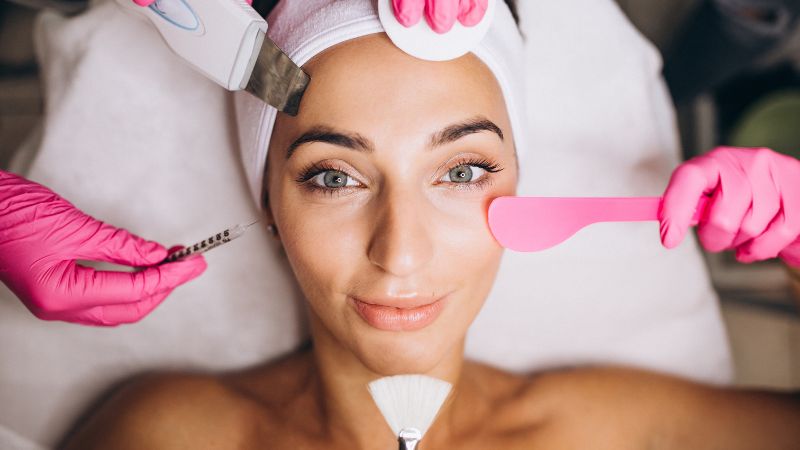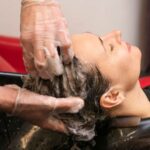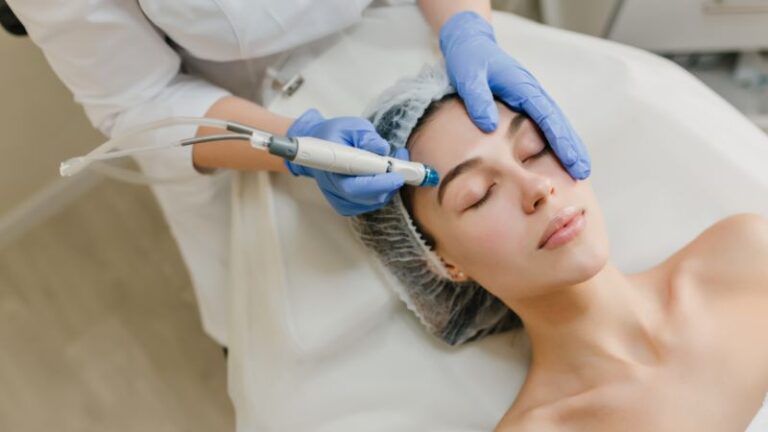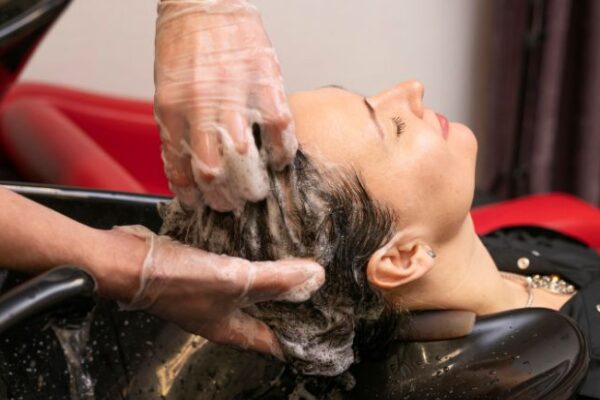Nowadays it is most important to know the best age for facelift. The pursuit of youthfulness has been a constant in human history, and with advancements in cosmetic surgery, individuals now have various options to enhance their appearance.
Facelift surgery, or rhytidectomy, is one such procedure that has gained popularity for its ability to rejuvenate the face and turn back the hands of time. The ideal age for facelift surgery varies from person to person, depending on genetics, lifestyle, and individual aging patterns. The key is making an informed decision after a thorough consultation with a qualified plastic surgeon, ensuring that the timing aligns with personal goals and overall health.
Facelift surgery, when performed at the right time, can provide a rejuvenated and natural-looking appearance, allowing individuals to embrace the aging process with grace and confidence. Let’s explore the factors influencing this decision and searching the best age for facelift surgery for undergoing this transformative procedure.
Understanding Facelift Surgery
Facelift surgery, also known as rhytidectomy, is a cosmetic procedure designed to address signs of aging in the face and neck. As time takes its toll on our skin and underlying tissues, wrinkles, sagging skin, and other visible signs of aging become more pronounced. The best age for facelift surgery aims to reverse these effects, providing individuals with a refreshed and more youthful appearance. In this article, we will explore the key aspects of facelift surgery, including the procedure itself, candidacy, recovery, and potential risks.

The Facelift Procedure:
Facelift surgery is a complex procedure that involves the tightening of facial muscles, repositioning of tissues, and removal of excess skin. So it is essential to select the best age for facelift. The surgeon customizes the surgery based on the specific needs and goals of the patient. Generally, the procedure targets the lower two-thirds of the face, addressing areas such as the jowls, neck, and cheeks.
Consultation and Planning:
Before undergoing facelift surgery, individuals undergo a thorough consultation with a qualified plastic surgeon. During this consultation, the surgeon assesses the patient’s facial anatomy, discusses their goals, and explains the details of the procedure. A personalized surgical plan is then developed to achieve the desired results.
Anesthesia:
Facelift surgery is typically performed under general anesthesia or intravenous sedation, ensuring the patient’s comfort throughout the procedure.
Incisions:
The surgeon creates incisions strategically placed to minimize visible scarring. Incision patterns may vary, but common locations include around the ear, extending into the hairline for concealment.
Tissue Repositioning:
The surgeon lifts and repositions underlying facial tissues to restore a more youthful contour. Muscles may be tightened to enhance the overall effect.
Excess Skin Removal:
Once the underlying tissues are addressed, excess skin is trimmed, and the remaining skin is carefully re-draped for a natural appearance.
Closure:
The incisions are meticulously closed with sutures or other closure techniques, ensuring minimal scarring.
Candidacy for Facelift Surgery:
Not everyone is an ideal candidate for facelift surgery. Candidates generally include individuals experiencing visible signs of aging such as sagging skin, deep creases, and loss of facial volume. Good candidates are in overall good health, do not smoke, and have realistic expectations about the outcomes of the procedure.
Recovery and Results:
Recovery from facelift surgery involves a period of swelling, bruising, and discomfort. Patients are advised to follow post-operative care instructions diligently, which may include the use of cold compresses, prescribed medications, and avoiding strenuous activities.
The full results of a facelift may take several weeks to months to become apparent as swelling subsides and the healing process progresses. However, patients often report a significant improvement in the tightness and youthfulness of their facial appearance.
Potential Risks and Considerations:
As with any surgical procedure, facelift surgery carries some inherent risks. It also depends on age capacity, the best age for facelift is remarkable. These may include infection, bleeding, scarring, and adverse reactions to anesthesia. It is crucial for individuals considering facelift surgery to thoroughly discuss potential risks with their surgeon and make an informed decision based on their health and personal circumstances.

Factors Influencing the Best Age
Determining the optimal age for various life events, decisions, and milestones is a complex and subjective matter. The concept of the “best age” is influenced by a myriad of factors that shape our individual experiences and perspectives. In this article, we will explore some key factors that contribute to the notion of the best age and how they impact different aspects of our lives.
Cultural and Societal Norms:
Cultural and societal expectations play a significant role in shaping our perceptions of the best age for certain activities or life events. In some cultures, there may be specific ages considered ideal for marriage, starting a family, or pursuing a particular career path. Societal norms often dictate when certain achievements or milestones are deemed most acceptable, influencing individuals to conform to these expectations.
Biological Factors:
The biological aspect of aging cannot be ignored when discussing the best age for various activities. Physical and cognitive development, as well as overall health, are critical considerations. For instance, the best age for peak physical performance may differ from the best age for intellectual pursuits. Understanding the body’s natural aging process can help individuals make informed decisions about when to engage in certain activities.
Personal Development and Maturity:
The level of personal development and maturity varies among individuals. Some people may find that they are better equipped to handle responsibilities or make significant life decisions at an earlier age, while others may need more time. Emotional intelligence, self-awareness, and the ability to handle life’s challenges are key factors that contribute to an individual’s readiness for different stages of life.
Technological Advancements:
The rapid pace of technological advancements has a profound impact on the best age for certain activities. For example, with the advent of online learning and remote work, individuals may have more flexibility in choosing the best age to pursue education or start a career. Technology can also influence social interactions, relationships, and lifestyle choices, shaping the optimal age for engaging in various experiences.
Economic Considerations:
Economic factors, such as job market conditions and financial stability, play a crucial role in determining the best age for certain life decisions. Factors like housing market trends, inflation rates, and economic stability can influence the timing of major financial commitments, such as buying a house or starting a business.
Social and Peer Influences:
Peer pressure and social influences can impact the choices individuals make at different ages. The desire to fit in or meet societal expectations within a peer group can lead individuals to make decisions based on external pressures rather than their readiness. Understanding and navigating these influences is essential in making choices aligned with personal values and goals.

The Best Age For Facelift Surgery
Generally, individuals in their 40s to 60s are common candidates for facelift surgery. It is the best age for facelift. The primary factor influencing the decision to undergo a facelift is the presence of visible signs of aging. Most individuals consider the procedure when wrinkles, sagging skin, and loss of facial volume become prominent.
Genetics plays a significant role in how the aging process unfolds. Some individuals may develop noticeable signs of aging earlier than others due to their genetic makeup. For this reason, it is also decided what age should you get a facelift. Additionally, lifestyle choices such as sun exposure, smoking, and skincare routines can impact the rate at which aging occurs. Those with a family history of premature aging or who engage in habits that accelerate the process may consider a facelift at a younger age. A well-informed decision, coupled with realistic expectations, can lead to a successful facelift experience and a rejuvenated, more youthful appearance.
Risks and Benefits
It depends on your decision and selection of age. First of all have to know the best age for facelift. Face lift age selection is the most common factor for you. The best age for a face lift, will bring a good result. Now we discuss the benefits as follows:
Youthful Appearance:
One of the primary benefits of a facelift is the restoration of a more youthful and rejuvenated appearance. While aging is a natural part of life, many people facelift at 45. They may start considering ways to enhance their appearance and regain a more youthful look. The procedure addresses sagging skin, wrinkles, and folds, resulting in a smoother, firmer complexion.
Improved Self-Confidence:
Enhanced physical appearance often translates into improved self-confidence and a positive self-image. Individuals who undergo a successful facelift may experience a boost in their overall well-being and mental health.
Long-lasting Results:
Unlike some non-surgical cosmetic treatments with temporary effects, a facelift offers long-lasting results. While the aging process continues, the procedure can provide a significant and enduring improvement.
Customized Approach:
Modern facelift techniques allow for a more personalized approach, addressing the specific concerns of each patient. Surgeons can tailor the procedure to meet individual aesthetic goals, ensuring a natural and harmonious outcome.

Risks of Facelift Surgery:
Surgical Risks:
As with any surgical procedure, facelift surgery carries inherent risks, including infection, bleeding, and adverse reactions to anesthesia. These risks are typically low but should be thoroughly discussed with a qualified surgeon.
Scarring:
While advancements in surgical techniques have minimized scarring, facelift surgery involves incisions, and some scarring is inevitable. Skilled surgeons work to place incisions discreetly, but individual healing processes may vary.
Numbness or Altered Sensation:
Some individuals may experience temporary or permanent numbness, altered sensation, or tightness in the facial areas following a facelift. This is a common side effect but often resolves over time.
Unsatisfactory Results:
While most patients are pleased with the results of their facelift, there is always the possibility of dissatisfaction. Unrealistic expectations or unforeseen complications can contribute to less-than-ideal outcomes.
Conclusion:
Traditionally, facelifts were predominantly sought by individuals in their 40s and beyond, as aging signs became more pronounced. However, as societal perceptions of beauty and aging continue to evolve, a paradigm shift is occurring, with more people in their 30s and 35s seeking proactive measures to maintain a youthful appearance.
Considering the best age for a facelift depends on your physical and genetic structure. The average age for facelift is 40. but exceptional is 30 and 35 age. An individual’s facelift at 35 is often viewed as a preventive measure to address early signs of aging. The decision to have a facelift in 30s reflects the evolving landscape of cosmetic surgery and the changing attitudes toward aging.
By reading this article, if you select the best age for facelift, then confirm you will get a good result. So be careful about selecting your facelift age.









